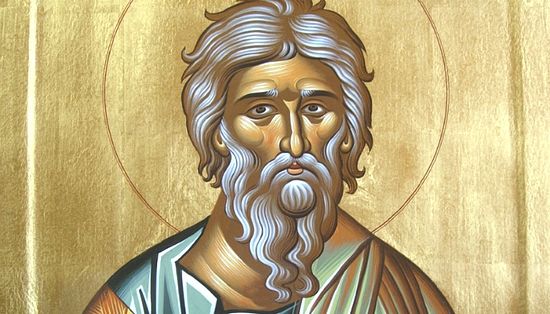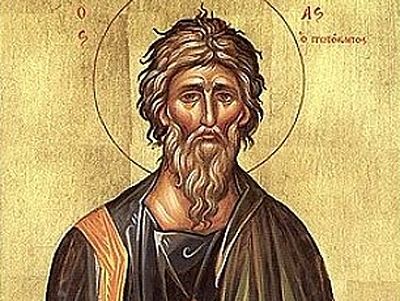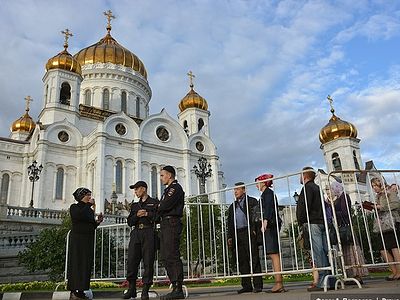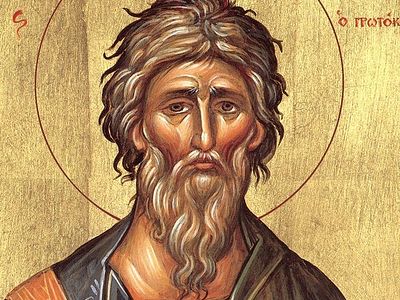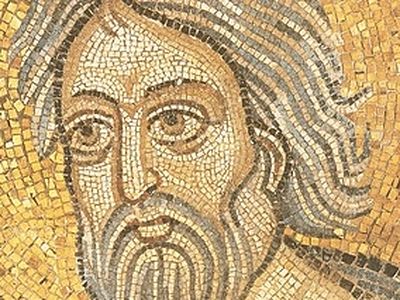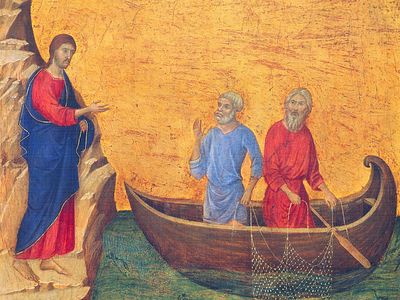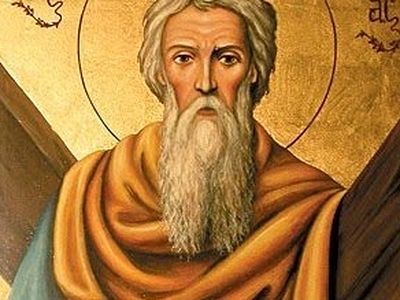St. Andrew the First-called — given this title because he was the first Apostle to follow our Lord — was a fisherman from Bethsaida.
A disciple of St. John the Forerunner and brother to St. Peter, St. Andrew responded to the call of Christ with tremendous vigor. In the Gospel of John, we see Andrew respond to The Forerunner’s declaration “Behold the Lamb of God!” by leaving John to follow Christ, and telling his brother Peter that they had found The Messiah.
After following Christ during His earthly ministry, beholding Him after His resurrection, and receiving the Holy Spirit at Pentecost, St. Andrew heeded Our Lord’s commandment to preach the Gospel in all the world and baptize the nations in a most literal and spectacular fashion.
During his missionary travels he preached the Gospel from Judea to Palestine; from Antioch to the town of Byzantium (which would later become Constantinople); from Georgia to Armenia, performing miracles and preaching to small groups, converting lands to the Christian faith wherever he would go. And this was only his first missionary trip!
On subsequent missionary trips, he brought the true faith through Pakistan and Afghanistan, up into Russia, among other places, coming to a stop in Romania, where he lived in a cave for 20 years. Some have speculated he stopped in Romania for such a long time because he felt a great kinship with and acceptance by the Romanian people. In many lands the preaching of the Gospel was not received warmly, and those preaching it were often treated harshly or driven out. St. Andrew suffered many hardships and persecutions for the Gospel in various lands. But the Romanian people were already monotheists, their clergy practiced celibacy and vegetarianism, and they didn’t keep slaves, so they perhaps received the Gospel more readily than others, and converted to Christianity happily, seeing it as the fulfillment of their own religion.
St. Andrew’s missionary endeavors eventually brought him to Patras, where he performed many miracles and converted many more to Christ, including the family of the Proconsul Aegeates. Infuriated by this, the Proconsul had St. Andrew tortured and crucified on an X-shaped cross. While on the cross, St. Andrew continued to preach for two days to those who were observing. And while he was praying, nearing death, a vibrant light enveloped him for a whole half hour, until he finally gave up his spirit.
Do you see how God draws near to those of the most humble station, to simple fishermen, and through them performs works of unutterable wonder? How he bestows upon them who answer His call such radiant gifts, and inspires in them a love for men that burns so intensely as to dedicate their lives to denying themselves, living instead to spread the Gospel of Jesus Christ, even unto torturous, martyric death? Glory be to our God!
St. Ambrose of Milan once wrote: “We believe fishermen, not dialecticians.” God has declared a kinship with the humble, the lowly, the poor, and the meek, deciding to speak to the world through them. He has called us all to become those things ourselves, so as to be drawn into His life of humility, self-abasement, and love.
Through the prayers of St. Andrew the First-called Apostle, may we also find the strength to answer His call.
O Andrew first-called of the apostles, Brother of Peter the first-enthroned, intercede with the Master of all to grant peace to the world and great mercy to our souls. —Apolytikion
Let us acclaim the namesake of courage, that herald of things divine, the first-called of the Savior’s disciples, and the kinsman of Peter; for as he formerly cried out to him, so doth he now to us: Come, we have found the Desired One. —Kontakion
